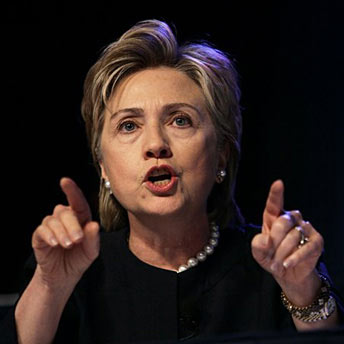Tuesday
Sep292009
Middle East Inside Line: Palestine Unity Government Near?
 Tuesday, September 29, 2009 at 8:03
Tuesday, September 29, 2009 at 8:03  On Monday, Hamas' Damascus-based political leader Khaled Meshal said that the organisation was close to an agreement with Fatah, thanks to the productive efforts of Cairo. The exiled Palestinian leader had been speaking with the head of Egyptian intelligence, Omar Suleiman, about the latest draft proposal.
On Monday, Hamas' Damascus-based political leader Khaled Meshal said that the organisation was close to an agreement with Fatah, thanks to the productive efforts of Cairo. The exiled Palestinian leader had been speaking with the head of Egyptian intelligence, Omar Suleiman, about the latest draft proposal.The previous proposal was rejected by Hamas that did not want to be under the rule of the Palestinian Authority. The latest plan is an advisory committee, headed by Fatah leader Mahmoud Abbas, in which both sides can run daily issues of the Gaza Strip and the West Bank until presidential and parliamentary elections can be held in the first half of 2010. Fatah will be allowed to deploy 3,000 security personnel to Gaza and both sides will release each other's detainees.
Meshal said, "We overcame all the disagreements in the Egyptian paper," however, he had suggested changes for an agreement to be signed by the end of October. He added: "They [the Egyptians] will work on laying down a final draft for the reconciliation project in the coming few days."
tagged  Egypt,
Egypt,  Fatah,
Fatah,  Gaza,
Gaza,  Hamas,
Hamas,  Khaled Meshal,
Khaled Meshal,  Mahmoud Abbas,
Mahmoud Abbas,  Palestine,
Palestine,  Palestinian Authority,
Palestinian Authority,  West Bank in
West Bank in  Middle East & Iran
Middle East & Iran
 Egypt,
Egypt,  Fatah,
Fatah,  Gaza,
Gaza,  Hamas,
Hamas,  Khaled Meshal,
Khaled Meshal,  Mahmoud Abbas,
Mahmoud Abbas,  Palestine,
Palestine,  Palestinian Authority,
Palestinian Authority,  West Bank in
West Bank in  Middle East & Iran
Middle East & Iran 
 The Jerusalem Post reports
The Jerusalem Post reports Lebanon's Jumblatt Pursuing Iran Link? Opposition MP Walid Jumblatt, the leader of Lebanon's Druze community, told Iran's Press TV on Saturday that
Lebanon's Jumblatt Pursuing Iran Link? Opposition MP Walid Jumblatt, the leader of Lebanon's Druze community, told Iran's Press TV on Saturday that  Israel Manoeuvres on Settlements Issue: Just one day after the approval of new 455 housing units in the West Bank, Israeli Defense Minister Ehud Barak (pictured) tacked back diplomatically and said that
Israel Manoeuvres on Settlements Issue: Just one day after the approval of new 455 housing units in the West Bank, Israeli Defense Minister Ehud Barak (pictured) tacked back diplomatically and said that